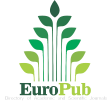A New Definition of Journalism Functions in the Framework of Hybrid Media Systems: German and Russian Academic Perspectives
Keywords:
definition of journalism, journalism functions, Russian journalism, German journalism, public sphere, opinion journalismAbstract
The communication patterns of our society have undergone crucial changes due to the development of the digital public sphere and the formation of ‘hybrid media systems’ (Chadwick 2011). This transformation challenges professional journalism in its role as the fourth estate. It is obviously essential to re-think the role and functions of mass media in the modern ‘network society’ (Castells, 2010). Some experts even talk about the end of the “century of journalism” (Weischenberg, 2010), and others argue that it is just the end of the 20th century’s news-journalism and the beginning of the new kind of professional journalism that will still be able to fulfill its core functions of building the public sphere, in accordance with the conditions of the transformed society (Pöttker, 2012). For conventional mass media that means a major switch from ‘news’-journalism to ‘orientation’ journalism (Bruns, 2005). This transformation has been intensified in Russia by the protest movement that fueled a discussion among journalists about new standards of journalism: should they just be observers or are they allowed and even supposed be activists of social movements? This paper examines what this paradigmatic shift means to the profession and to the self-identification of journalists as it is being viewed in Russia and in Germany. The author presents arguments of journalism scholars and journalists from both countries and argues that this development brings along a number of serious challenges for the society, connected with an enormous rise of opinion writing that leads journalists back to the era of pre-professional and pre-commercial journalism. In order to preserve journalism as a profession with socially important functions, a revision of the concept and of the standards of journalism is needed, both in Germany and in Russia.
Downloads
How to Cite
Issue
Section
License
Copyright (c) 2013 Anna Litvinenko

This work is licensed under a Creative Commons Attribution 4.0 International License.








